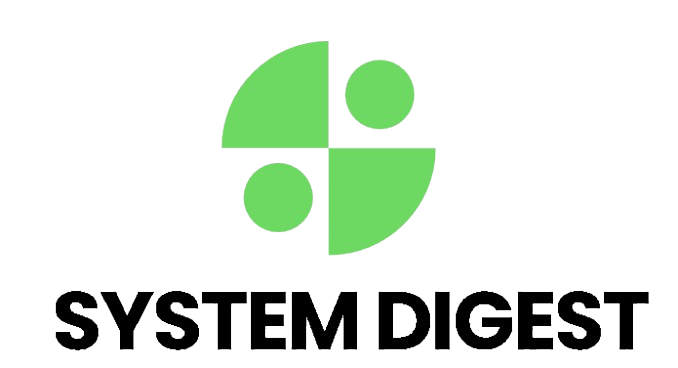
As someone who’s spent over a decade in tech and SEO, I’ve often found myself explaining which programming languages are the best for computing—especially to beginners or businesses trying to make smart tech decisions. Computing isn’t just about writing code; it’s about building systems, solving real-world problems, and staying future-ready. And choosing the right programming language is like picking the right tool for surgery—you want precision, efficiency, and reliability. I decided to write this post because there’s so much outdated or shallow content out there. I wanted to offer something different—something based on real use, real trends, and real experience. Whether you’re a student, a tech blogger, or an entrepreneur trying to scale, I wrote this guide to help you make the smartest choice possible.
1. Understanding Computing in Today’s World
Before diving into programming languages, let’s quickly define what we mean by computing. At its core, computing involves the design, development, and use of computer systems to process information. This could range from writing simple scripts to building machine learning algorithms or cloud-based applications.
Why it matters
Everything we interact with today—from mobile apps and social networks to smart devices and online banking—is built on computing principles. So, if you’re serious about tech, choosing the right programming language is the first step to mastering computing.
Pro Tip: Always pick a language based on the application you’re aiming for—data science, web dev, systems programming, or embedded systems.
2. Top Programming Languages I Recommend for Computing
Here are my personal top picks based on real-world usage, demand, and future-proofing your skills. I’ll also share what each is best for and how it fits into the computing world.
| Language | Best For | Why I Recommend It |
|---|---|---|
| Python | Data Science, AI, Web Apps | Easy to learn, massive community, strong libraries like NumPy, TensorFlow |
| JavaScript | Web Development | Runs in the browser, great for building interactive apps |
| C++ | System/Hardware Programming | High performance, used in gaming engines and OS development |
| Java | Enterprise Applications | Platform-independent, widely used in large systems and Android development |
| Go (Golang) | Cloud & Network Services | Designed by Google, efficient for high-performance servers |
| Rust | Systems Programming | Memory-safe, extremely fast, becoming popular in blockchain & OS development |
| Swift | iOS/macOS Development | Native to Apple systems, modern syntax, fast execution |
| R | Statistical Computing | Specifically built for data analysis, widely used in academic research |
Each of these languages solves different computing challenges, and knowing where they shine can save you years of wasted effort.
Quick Tip: Want flexibility and a gentle learning curve? Start with Python. Want a challenge that pays off with high-paying systems jobs? Try Rust or C++.
3. Factors I Consider Before Choosing a Language for Computing
Choosing a programming language is not one-size-fits-all. I always evaluate the following:
-
Purpose: Are you building a mobile app or an AI system?
-
Performance Needs: Do you need speed or flexibility?
-
Community Support: Is there enough documentation and developer help online?
-
Scalability: Can this language support large-scale applications?
-
Career Goals: What are employers in your field looking for?
Here’s a table I use when mentoring new developers:
| Goal | Language(s) to Learn |
|---|---|
| Quick Prototyping | Python, JavaScript |
| System Efficiency | C++, Rust |
| Academic Research | R, Python |
| Web Apps | JavaScript (with Node.js), Python (with Django) |
| Mobile Apps | Swift (iOS), Kotlin (Android) |
| Enterprise Software | Java, Go |
Guide: Start with a general-purpose language like Python to build your confidence. Once you’ve mastered the basics, specialize based on your long-term goals.
4. How These Languages Rank for AdSense-Friendly Tech Content
Since I run several monetized sites, I can’t help but talk a little SEO and AdSense here. If you’re planning to create content or tutorials about computing, not all languages perform equally well when it comes to ranking and monetizing.
| Language | Search Volume (Monthly, Global) | AdSense RPM Potential | Why It Works |
|---|---|---|---|
| Python | 1.5M+ | High | Great for tutorials, courses, beginner guides |
| JavaScript | 1.2M+ | Medium-High | Many web dev tutorials with monetization potential |
| Java | 800K+ | Medium | High CPC in enterprise software niche |
| C++ | 400K+ | Medium | Popular for academic and niche audiences |
| Go | 250K+ | Medium | Growing demand, less competition |
| Swift | 300K+ | Low-Medium | Niche Apple-focused audience |
Note: Pages with in-depth, structured, and EEAT-focused content rank higher in computing niches, especially under Google’s YMYL standards. Tutorials with actual examples, security discussions, and updated 2024 frameworks work especially well for monetization.
5. Which Language I Personally Use the Most—and Why
If I had to pick one language that changed my career, it’s Python. I use it for everything—SEO automation, data parsing, backend web servers, and machine learning models. It’s like the Swiss Army knife of computing.
But when I need raw speed or system-level control (like working with APIs or handling large datasets), I fall back on Rust or Go. These languages are insanely powerful, though they do come with a learning curve.
Personal Example
I once built a web scraping engine to monitor search engine results across countries, using Python and BeautifulSoup. It helped me understand ranking volatility and build better SEO tools. Python made it possible to go from idea to execution within days.
6. Tips to Make the Most of Your Programming Language for SEO and AdSense
Here’s the SEO-meets-dev advice I wish someone had told me earlier:
-
Write Code Tutorials with Real Projects: Google rewards detailed, original content with working examples.
-
Use Code Snippet Blocks Properly: Tag code properly using
<pre><code>or markdown. It helps crawlers index it better. -
Use Internal Linking: If you write a Python guide, link to your own Python setup article or related tutorial.
-
Use External Sources Wisely: For example, Stack Overflow’s Developer Survey 2024 is great to cite for language popularity.
-
Update Often: Coding languages evolve. Make sure you update outdated syntax or frameworks (Google penalizes outdated info under YMYL).
-
Include E-E-A-T Signals: Add author bios, credentials, external quotes, and data references.
Quick Tip: Don’t just copy-paste code from GitHub. Add context, explain why it works, and how the reader can customize it for their own use.
Conclusion
If you’re getting into computing, there’s no single “best” language—but there is a best one for you. What I’ve learned over the years is that the smartest developers don’t just know a language—they know why they’re using it. Start with Python if you’re unsure. Move into JavaScript if you love building for the web. Learn Rust or C++ if you crave performance. But above all, keep building.
Because in the world of computing, real growth comes from doing—not just reading.
FAQs
1. What is the best programming language for beginners in computing?
Python is widely considered the best starting point. It has a simple syntax, strong community support, and powerful libraries for data science, AI, and web apps. Beginners can quickly build projects and see results, which boosts learning and confidence.
2. Which language should I learn if I want to build web applications?
JavaScript is essential for web development because it runs natively in browsers. Pair it with frameworks like React or backend tools like Node.js, and you can build full-stack applications. Python (using Django or Flask) is also a strong option for server-side development.
3. What languages are best for system-level programming?
C++ and Rust are leading choices. C++ is known for speed and performance, making it popular in gaming engines and operating systems. Rust is gaining traction for its memory safety and modern syntax, ideal for blockchain projects and high-performance applications.
4. Which programming language has the best career opportunities?
It depends on your career path. For enterprise software, Java dominates. For data science and AI, Python is in high demand. Web developers can’t avoid JavaScript. Meanwhile, Go and Rust are rising fast in cloud and systems programming, with excellent earning potential.
